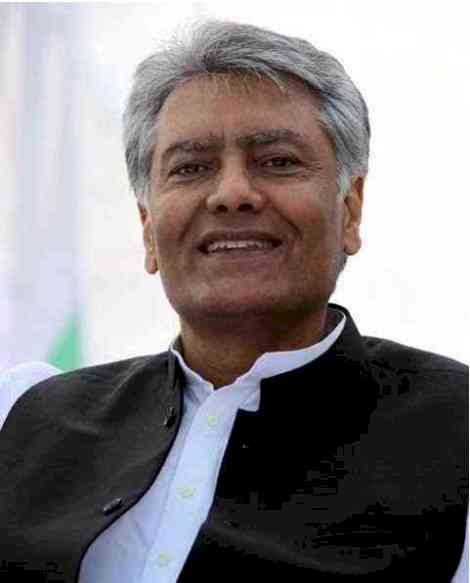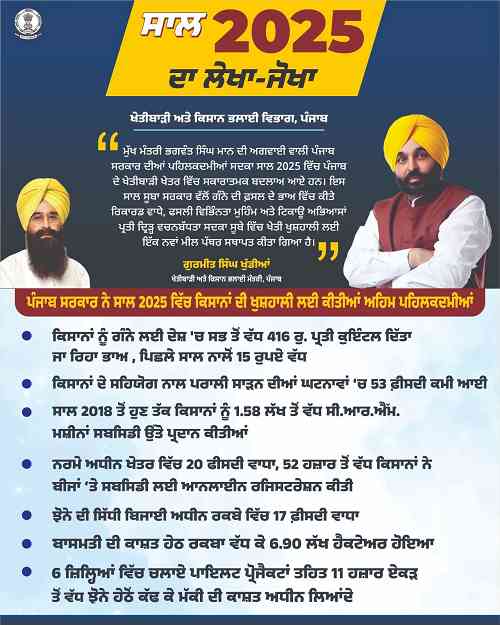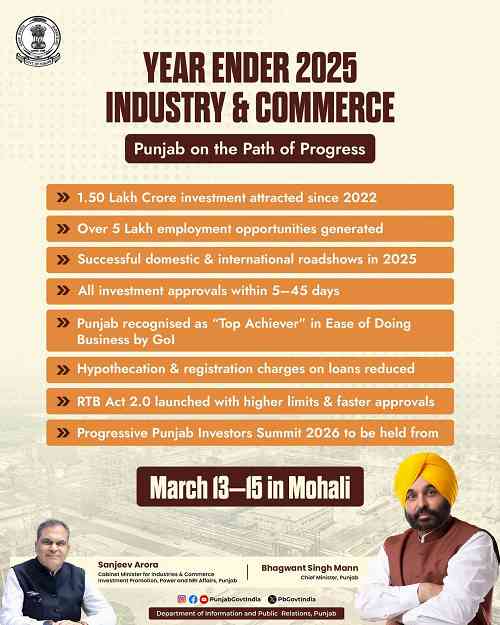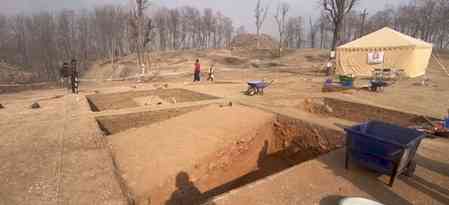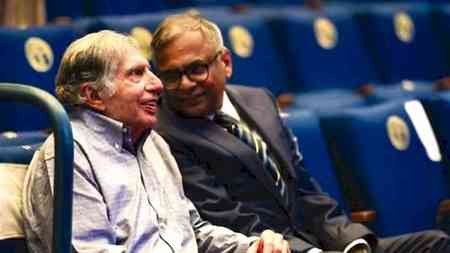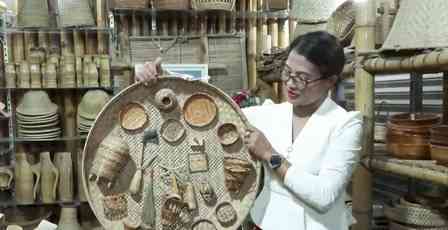PAU VC unveils book on epigenetics; genetic control and agricultural potential explored
A book titled ‘Fundamentals of Epigenetics’ was released by Dr Satbir Singh Gosal, Vice-Chancellor of Punjab Agricultural University, Ludhiana. The author, Dr Gurbachan Singh Miglani, retired as a Professor of Genetics in 2005 from PAU and later served as Adjunct Professor at the School of Agricultural Biotechnology for several years. The book launch took place on the university campus, in the presence of the university officers.

Ludhiana, June 13, 2023: A book titled ‘Fundamentals of Epigenetics’ was released by Dr Satbir Singh Gosal, Vice-Chancellor of Punjab Agricultural University, Ludhiana. The author, Dr Gurbachan Singh Miglani, retired as a Professor of Genetics in 2005 from PAU and later served as Adjunct Professor at the School of Agricultural Biotechnology for several years. The book launch took place on the university campus, in the presence of the university officers.
Congratulating the author for his remarkable achievement, Dr. S.S. Gosal highlighted that the book offers concise yet comprehensive information on various aspects of epigenetics, a field of life science that explores mechanisms such as DNA modifications, histone modifications, RNA modifications, non-coding RNAs, and chromatin remodeling. These mechanisms play a crucial role in regulating gene expression without altering DNA sequences. These regulatory processes result in phenotypic variations that can be utilized to enhance crop production and develop treatments for human diseases, he explained.
Dr. Gosal emphasized that epigenetic changes in plants can occur due to various factors like temperature, water availability, nutrient levels, and the use of fertilizers or pesticides. These factors can impact gene expression, potentially affecting the plant's growth, yield, and ability to withstand stressors such as pests and drought. He believed that the book would be a valuable reference for teachers and researchers in disciplines such as life sciences, agricultural sciences, medicine, biotechnology, molecular epigenetics, and biotechnology.
Dr. G.S. Miglani disclosed that the book is primarily intended as a textbook for undergraduate and graduate students studying epigenetics in conventional, agricultural, and medical universities. The fundamental premise of the book revolves around the understanding that genes act as instructions for the development and functioning of our bodies. However, epigenetics delves deeper into the chemical tags and modifications that can be added to DNA and proteins. It reveals that while the genetic code remains unchanged, gene behavior can be influenced, he added.
Underscoring that the application of epigenetics in agriculture focuses on how external factors can alter gene expression in plants and animals, Dr Miglani mentioned that it has significant implications for crop productivity, quality, and resilience in the face of environmental challenges. He informed that by exploring epigenetic mechanisms, researchers can uncover ways to optimize agricultural practices and enhance the performance of crops and livestock.
Dr. Parveen Chhuneja, Director, School of Biotechnology, commended the author for his work and acknowledged that epigenetics remains a relatively new and fascinating area of research with much more to discover. She pointed out that epigenetics reveals the intricate interplay between our genes and the environment, presenting fresh avenues for understanding and improving human health as well as agriculture.
Noting parallels, she clarified that plants possess genes just like humans that determine their traits such as height, color, and disease resistance. However, the activation or silencing of these genes can be influenced by environmental factors and farming practices, which is where epigenetics plays a crucial role. She concluded that this emerging field has opened up a range of possibilities in agriculture, providing new insights and strategies for crop improvement and sustainable farming practices.
In the end, Dr Vishal Bector, Associate Director (Institution Relations) proposed the vote of thanks.


 City Air News
City Air News 
